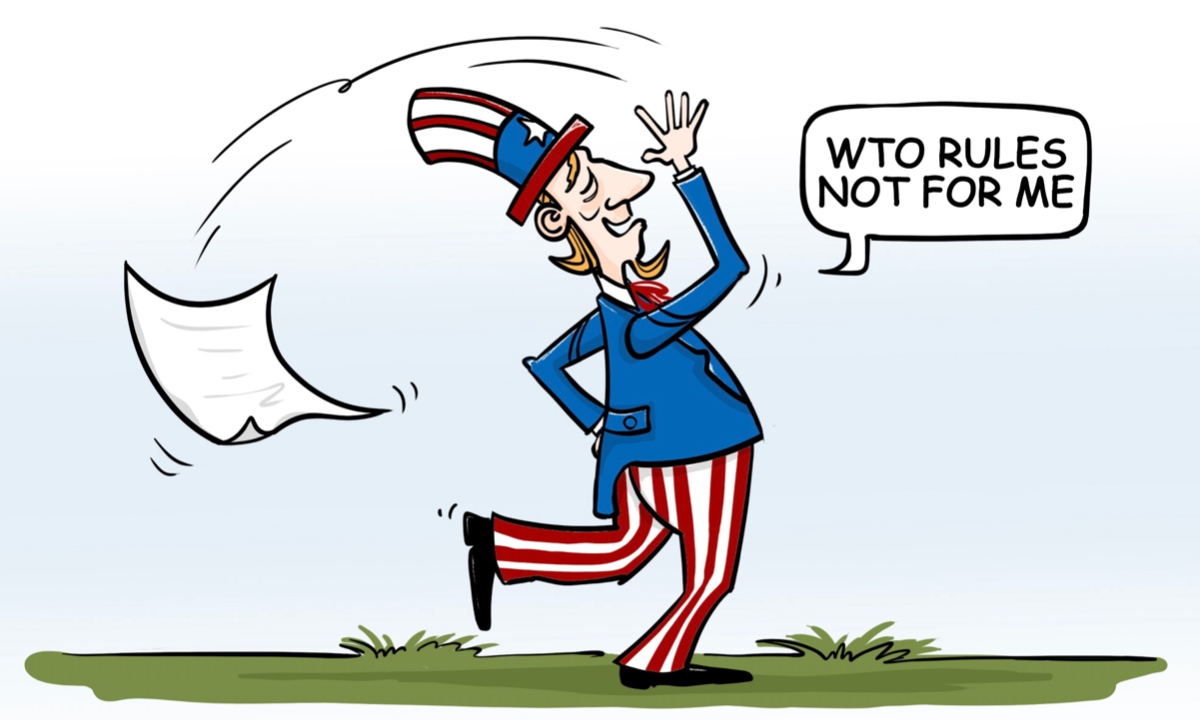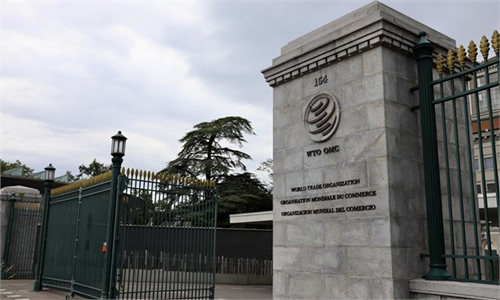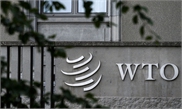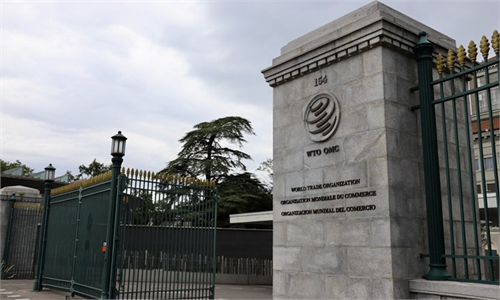
Illustration: Chen Xia/GT
Washington announced on Friday that it had lodged appeals against a series of WTO rulings that found various US behaviors breached global trade rules, including tariffs on steel and aluminum products from China and other countries and mandatory labeling requirement for products made in the Hong Kong Special Administrative Region.The US' move, coming after the WTO has recently made several rulings against the US, might seem normal, because after all, under the WTO's rules, all members are afforded the right to file appeals. However, as the Chinese saying goes, paper cannot wrap a fire. The move yet again lays bare the danger of the US' shameless hegemonic behaviors to the global free trade system with the WTO at its core and the global economy as a whole.
For starters, as China's Ambassador to the WTO Li Chenggang said at a Friday meeting, the US is basically appealing "every unfavorable panel report into the void, which the US itself has created."
Why? Because the WTO's Appellate Body has been paralyzed by the US for a long time, and without a functioning Appellate Body to make a final ruling, any case that is appealed disappears into a legal black hole. In other words, the US' move to file appeals is an underhanded tactic of escaping enforcement of WTO rulings against it.
Ever since the Obama administration moved to muzzle the WTO Appellate Body, it is increasingly clear to the international community that the US' attitude toward the WTO and other multilateral institutions is quite brutal. When Washington needs the WTO for its own purposes, it played up the rhetoric about a "rules-based international order." When the WTO stands in the US' way of being a unilateral bully in global trade, Washington tramples all over WTO rules and leaves them in the dust.
US officials often talk loudly about "rules-based international order," as if the US is the world's policeman. But the international community knows that what the US wants are "US rules" that serve its own hegemonic ambitious even if that means putting the world in serious peril. If anything, the world has become increasingly vigilant about the US' shameless hegemonic behaviors, with many countries, including Washington's own allies, are stepping up criticism against the US.
Over recent days, an increasing number of economies, including some of the US' allies, have expressed their opposition to and anger over the selfishness and protectionism shown by the US in its policies, which disrupt global industrial and supply chains. The US' so-called Inflation Reduction Act, which discriminates against companies and products made outside of the US or North America, has drawn ire of many major economies.
At a time when the global economy is facing the risk of slipping into a recession, the US' reckless sabotaging of the global trade system and international trade order is posing growing risks to the global economy. The longer the WTO dispute settlement mechanism is paralyzed, the bigger the risk of trade protectionism and even trade war the global trading system will face.
Last month, as many as 127 WTO members made a joint proposal to protest the US' long-term obstruction of the appointment of judges to the WTO's Supreme Appellate Body. This was the 61st proposal made by the vast majority of WTO members on this issue. The three-year dysfunction of the Appellate Body, which was caused singlehandedly by the US, has seriously restricted the WTO from playing its due role in upholding free trade rules.
To put it more bluntly, the US, with its constant and reckless attack on the WTO as well as protectionist economic policies at home, may have created a time bomb in the real rules-based international multilateral trade system. Specifically, with the US' Inflation Reduction Act coming into effect at the beginning of this year, there are growing concerns over an upcoming super-large-scale global trade war, which would be unbearable for the current global economy. And if it happens, the US is the sole culprit.



